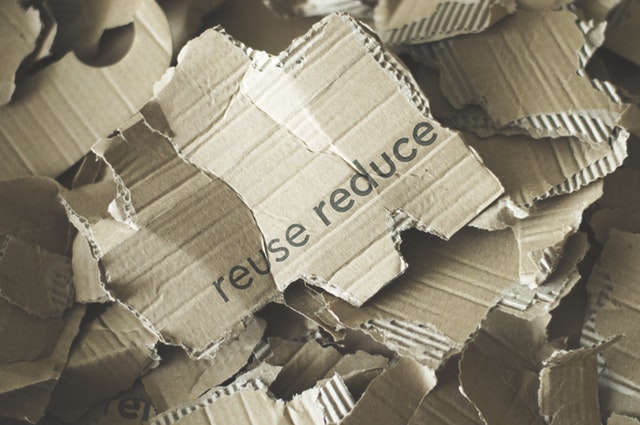It is becoming more and more evident in today’s modern world that people are becoming more educated and aware of international environmental issues as well as altering their behaviour to incorporate corporate social responsibility (CSR)and becoming more environmentally friendly. Given this favourable directive, sustainable resorts are certain to be abundant and five important areas to focus on include:
- Sustainable economic growth
- Enriched employment and decreased poverty
- Resource efficiency and environmental sustainability
- Cultural values, multiculturalism, and diversity
- Mutual understanding, security and harmony
Sustainable resorts will probably be characterised most by becoming environmentally sustainable and encouraging diversity and culture, though they’ll be in a position to bring about all factors. But, it is an extremely intricate problem that resorts will be split on.
Contemplating profitability and guest experience will be the two main facets of any hotel company, is it feasible to succeed while being sustainable and accountable, and to what degree is this feasible?
One of the very manageable and achievable paths resorts and hotels can consider is the path of environmental safeguarding and climate change management. There is now an excessive amount of evidence for climate changeto dismiss. Global temperature increases, melting ice caps, rising sea levels, consistently intense weather events and much more aim to some natural environment that requires intervention to recuperate.
What do sustainable resorts will need to equilibrium?
Hotels are a customer-oriented establishment and they can’t be feasibly expected to undertake tasks which make them undesirable or not financially worthwhile. Customer satisfaction always has to be top of mind, in addition to their profit margins.
If sustainable practices result in less reservations since the resort does not appear as extravagant, or higher prices due to the fact that they should set up and maintain new strategies, it might take a while before resorts undertake the challenge since they will have to choose if luxury and cost efficiency can coexist in an effective business strategy.

What can resorts do to become sustainable?
On the other hand, resorts may find becoming sustainable really lowers prices and enhances their market share of visitors.
The number of guests that want eco-friendly travel choices is predicted to increase quite significantly in comparison to last year. Two big price savers and cost cutters for any resort will be to decrease electricity and water usage. These are rather simple adjustments to execute and perfectly align with the sustainable tourism objectives. Water use is very high in the hospitality business, at approximately 250-500 litres each day/per room outlining the importance for effective and efficient liquid waste disposal.
International hotel manufacturers are already setting goals for ecological sustainability. Including Marriott, Hilton International, and Accor Hotels just to name a few.
There are simple environmentally friendly approaches that all resorts, whether they be waterfront accommodation or inner-city hostelscan implement in their own operations that have the potential to instantly slow their negative effect on the surrounding environment. These simple approaches include:
- Decreasing the water pressure
- Asking guests to reuse items when possible
- Installing leak discovering water systems
- Installing dual-flush toilets
- Grey water systems
- Install slimline water tanks
- Water bead laundry methods
Perhaps not only does this appeal to the increasing number of environmentally conscious guests but it is going to also increase awareness for some other guests and resorts to be sustainable in their own lives going forward, thus further contributing to the worldwide green cause.
More importantly, modern day guests are searching for authenticity and special experiences over traditional high-end frills and lavish amenities so showcasing sustainable practices in your resort might not only be not as harmful as you might believe, it may prove to have the opposite effect entirely.
A current study reported over 60 percent of individuals associate their brand devotion with shared values together with the new so on the planet where travellers are more mindful of the requirement for future sustainability, ensuring an eco-friendly brand might be a winning movement.
Reducing waste throughout the board
In resorts, activities like food preparation, consumption of pre-assembled things, guest cleaning and excess create waste. But, hotels can battle this dilemma by creating waste management applications and systems to classify waste from substances which may be recycled. Food waste monitoring, menu construction improvements and close collaboration with all suppliers can decrease food wastage. Grease trap cleaning ensures reduced environmental pollutionby stopping grease and oil from entering our waterways and as worth considering. Purchasing cleaning products which use less packaging reduces waste as well.
These simple changes can have a big effect on sustainability for both regular hotels and chain resorts. To save water consider water tank installation. Guests may appreciate hotel brands which have initiated a campaign in a bid to lower their ecological footprints and workers will be pleased to work for all these forward-thinking organisations.
How do sustainable resorts maintain their outcomes?
A sustainability plan is only helpful if it is a long-term remedy. To be sure you can maintain your plan in the long-term, your resort will have to:
- Quantify and measure
Keep constant track of your progress and just how much influence your efforts have. Try to provide your results real-world context in order to understand. Such as, what number of Olympic swimming pools does your water-saving equate into annually?
- Get your employees involved
The more conscious your employees become, the easier it’ll be to manage and implement your strategies. They could instruct guests but also do simple things such as turn off taps between washing up or cleaning.
- Research through your guests
You want to learn whether guests have an understanding of what you are trying to achieve and how they believe you are doing, and exactly what they wish to enhance.
In the long-run, every single hotel differs from one another, and a major American hotel chain may be equipped better than a wharf hotel in Hobartin balancing guest expectations and environmental sustainability.
